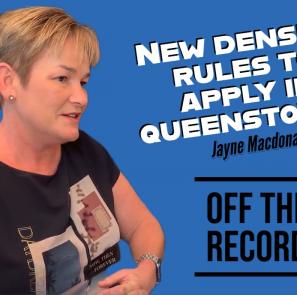Stay up to date with our latest News, Views & Resources by subscribing to our newsletter. We promise to provide you with quality content & the latest industry news.
Name Suppression In Court
Why is there name suppression in court? The issue of name suppression is a vexed one.
It is human nature to be curious. Most of us prick up our ears when hearing that someone has been granted name suppression. This article explores the principles behind name suppression and why some people are granted this, and why others are refused.
New Zealand has a long-established principle that our legal system is one of open justice; the general public is entitled to know the identity of those who come before the courts. There are, of course, exceptions; there are many valid reasons why name suppression should be considered. However, in recent years permanent name suppression has become increasingly difficult to obtain.
Grounds for name suppression
Name suppression guidelines are contained in the Criminal Procedure Act 2011. There are various grounds the courts will consider before ordering name suppression. The courts can suppress the identity of the defendant if publication is likely to:
- Cause extreme hardship to the defendant or a person connected with the defendant
- Cause suspicion on another person that may cause undue hardship
- Cause undue hardship to any victim of the offence
- Create a real risk of prejudice to a fair trial
- Endanger the safety of any person
- Lead to the identification of another person whose name is suppressed
- Prejudice the maintenance of the law, or
- Prejudice the security or defence of New Zealand.
Interim name suppression is relatively straightforward to obtain. If an arguable case can be made based on one of the factors above, interim name suppression will be granted by the court. An order for permanent name suppression is more difficult.
Permanent name suppression
In a 2014 case,[1] the HIgh Court noted the starting point; that proceedings are held in open court and the media can report on those proceedings.
To override this starting point, someone applying for name suppression must meet one of the criteria listed above.
The test for extreme hardship is not an easy test to meet. In a 2015 case[2] the Court of Appeal considered a challenge to earlier decisions in respect of name suppression. Mrs Robertson had pleaded guilty and been sentenced in respect of three charges of theft by a person in a special relationship. The victims were a surf lifesaving club, a parent-teacher association and Mrs Robertson’s mother.
Name suppression was sought on the grounds that publication would cause extreme hardship to Mrs Robertson, her family and her employer. Medical evidence was submitted to the court.
The lower courts decided there was not sufficient evidence to depart from the usual principle of open justice. Mrs Robertson sought leave to appeal to the Court of Appeal; her application was declined. It was held that ‘extreme hardship’ required a very high level of hardship. It must be something beyond the usual hardship and embarrassment associated with publication of court proceedings.
Protecting a victim’s identity
Name suppression is also regularly granted to protect the identity of victims. In the case of certain types of sexual offending, name suppression of the offender will be automatic in order to protect the victim.
The High Court in Christchurch considered an interesting case in 2015.[3] In 1994, Mr X was convicted of sexual offending against two sisters. The names of the offender and the victims were automatically suppressed. The suppression orders remained in force for more than 20 years. In 2015, however, the victims went to the High Court to have name suppression lifted and their names made public. They subsequently sought to have the offender’s name identified. They argued his identity was only suppressed back in 1994 to protect them.
The High Court declined to lift the suppression order, stating that 20 years had passed and Mr X had not reoffended. The court considered there would be extreme hardship to Mr X if name suppression was removed.
This case raised an interesting point. The law allows for name suppression to be ordered to protect victims. However, if the victims don’t support the suppression, should the suppression be allowed? This is a difficult question.
A fair trial
Another issue that often comes up in name suppression cases is the right to a fair trial. This is a fundamental principle of our legal system. If a name is in the public arena then potential jurors could be influenced by publicity about a case. In these situations, interim name suppression is likely to be granted until there is a verdict.
In short, when charged and summonsed to appear in court, anyone has the option to seek name suppression; however, it is not an easy process. It is only in certain circumstances that the courts will deviate from the principle of open justice.

- Rent reviews in commercial leases: Methods of review
- Vendor supplied reports/disclosures: Can you rely on them?
- Property briefs: Proposed reform to the overseas Investment Act 2005 - Granny flat legislation just passed - No further restrictions on sunset clauses in agreements - Changes to earthquake-prone buildings assessment
The New Zealand property market can be challenging, especially for those buying in Central Otago, and we are seeing a steady rise in keen buyers exploring creative paths to climb...
Read More
On 4 July 2024, the Coalition Government introduced its plan to fix our housing crisis consisting of five interlocking actions.
Read More
Relationships can be complicated waters to navigate at the best of times, but it can become even trickier when thought needs to be given to relationship property matters.
Read More
Lending money to your children to buy their first home can be a generous and life-changing move, but it’s essential to consider the legal implications before proceeding.
Read More
The Trust Act 2019 outlines the obligations of trustees, and when taking on a trusteeship an individual or company must be aware of the risks involved.
Read More





https://www.youtube.com/watch?v=Ml7nmEmtvSY
Read More
Trusts Act 2019 also affects executors and administrators of wills
Read More
Creditor compromise regime: Another option in insolvency Guest editorial: The economy - tougher times ahead? Love, heartbreak and...death? Make a new will and EPA's when you separate New Incorporated...
Read More
https://www.youtube.com/watch?v=lZ6pC9agrrs
Read More

Senior Associate Scott Donaldson and Senior Solicitor Alice Milne have released episode 3 of their podcast, Off the Record.
Read More
Senior Associate Scott Donaldson and Senior Solicitor Alice Milne have released episode two of their podcast, Off the Record.
Read More
Duncan Anderson, Associate, Mactodd Lawyers, Queenstown
Read More
Senior Associate Scott Donaldson and Senior Solicitor Alice Milne have started a new video podcast where they address issues in law affecting Queenstown businesses.
Read More
Mental health in the workplace Co-ownership arrangements Checking your home is accurately insured Helping your family before you pass away Notifications of privacy breaches increase significantly Post script
Read More


Mann v Paterson Constructions Pty Ltd—Builders' Quantum Meruits Revisited' (2021) 37 Construction Law Journal 207 discusses recent changes to the law in Australia regarding restitutionary claims able to be made...
Read More
Buying off the plans New edition of To Trust or Not to Trust Climate Action Toolbox Post-Covid working world An independent trustee Postscript
Read More

Investment in Farming - A focus on syndicated farm investments The finite supply of water - Water easements Over the Fence - Crown Pastoral Land Reform Bill (submissions open),...
Read More


The government’s Budget, presented by the Minister of Finance the Hon Grant Robertson on 14 May has addressed, in the words of the Minister, “a 1-in-100 year health and economic...
Read More
These helpful checklists will guide you thought some of the most important areas you and your lawyer need to address when purchasing or selling a residential property and also when moving.
Read More
Also includes comprehensive checklists to you don't miss out any important step as well as details on how to protect your assets and when you also need to consider a...
Read More
Not all investments in NZ require consent from the Overseas Investment Office (“OIO”) but like many countries NZ has controls on overseas investment. Certain land is subject to OIO consent.
Read More
This practical guide designed to steer you through the essentials of Family Trusts including: Is a family trust for you? Protection given by a Family Trust. Planning for your life. Duties of trustees and how to run a trust. Costs.
Read More
Our local knowledge, experience and expertise will provide you with the support and advice you need for a successful property purchase, regardless of the size or complexity of the transaction.
Read More
We have produced a practical guide on buying a home or an investment property in New Zealand in Mandarin.
Read More
You’re catapulted into thinking about organising a funeral, whether it will be a cremation or burial and how to organise the day, and then you also need to think about...
Read More

